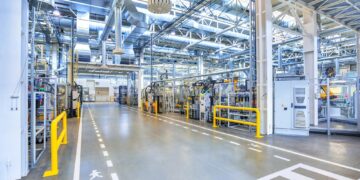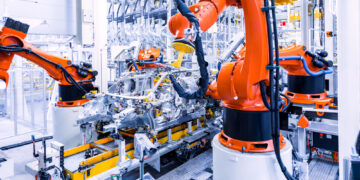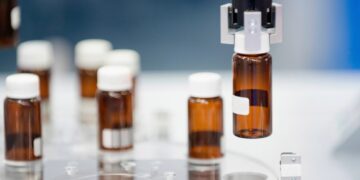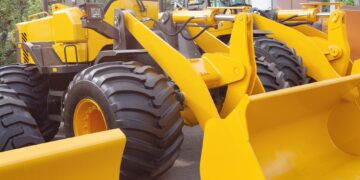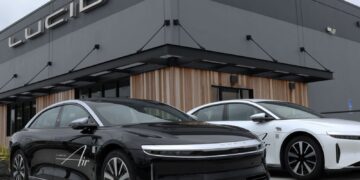SABIC, a leader in the chemical industry, has partnered with iyris (formerly RedSea) and Napco National to develop a durable greenhouse roofing solution. This innovation uses certified circular polyethylene from SABIC’s TRUCIRCLE portfolio and is part of Saudi Arabia’s National Food Production Initiative, aimed at enhancing agricultural sustainability and regional food security.
The collaboration involves using SABIC’s linear low-density polyethylene (LLDPE) resin, produced from mixed post-consumer plastics, in large agricultural greenhouses. These plastics are converted into pyrolysis oil through advanced recycling, creating new polymer resins at SABIC’s Jubail plant. Napco National then uses this certified circular LLDPE to manufacture robust greenhouse roofing films.
Khaled Al-Jalawi, SABIC’s global circular economy director, expressed pride in the project, highlighting the sustainability benefits of using advanced recycled plastics. This initiative showcases SABIC’s commitment to plastic circularity and its collaboration with local entities to support the agriculture industry.
Outstanding Features
The greenhouse film, made by Napco National with SABIC’s circular polyethylene, boasts a thickness of 200 µm, excellent tensile strength, and UV stability. It also incorporates iyris’ award-winning SecondSky technology, enhancing thermal performance by blocking near-infrared heat without affecting photosynthetically active radiation transmission.
Chadi Radi, from Napco National, emphasized the successful collaboration in producing the SecondSky greenhouse film, which aligns with their commitment to sustainable development. This partnership is paving the way for a greener and more sustainable agricultural industry in Saudi Arabia.
SABIC is the first regional supplier of certified circular polymers using ISCC PLUS certified feedstock from local production. This aligns with increasing customer demand for sustainable materials, leveraging local capacities for more responsible options.
Extensive Collaboration
The National Food Production Initiative also involves several Saudi entities, including Red Sea Global, Tamala, KAUST, Terraxy, and the University of Tabuk, contributing to the project’s analytical studies and soil regeneration efforts.
The initiative’s first achievement is a 0.75-hectare greenhouse facility at Al-Bada, built on regenerated land. This operational facility has already delivered its first crop harvests to local resorts, showcasing the project’s potential impact.
Scalable Model for the Future
The Al-Bada facility represents a scalable model for transforming Saudi agriculture, offering solutions to challenges posed by climate change. It aims to reduce water, energy, and fertigation costs while enhancing crop yield and quality.
John Keppler, executive chairperson of iyris, highlighted the project’s role in improving Saudi Arabia’s food security by integrating SecondSky technologies with SABIC’s TRUCIRCLE materials. This collaboration exemplifies the transformative potential of Saudi companies in agriculture.
As a successful case study, Al-Bada is positioned as a replicable model for local produce cultivation, both within the Kingdom and beyond.


